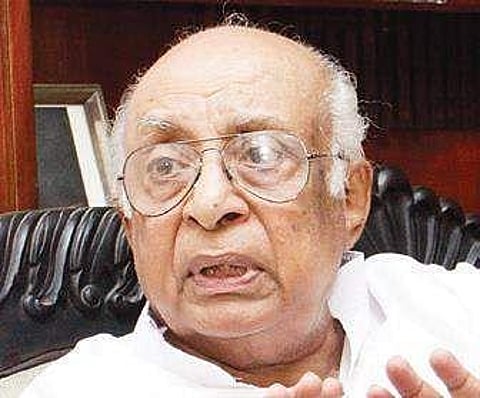

KOTTAYAM: Even as stalemate continues over implementing the Supreme Court order in connection with the disputes between Jacobite and Orthodox factions of the Malankara Church on sharing churches and its assets, the Kerala Law Reforms Commission chaired by the former Supreme Court judge Justice K T Thomas submitted the final bill to the state government proposing referendum to determine the ownership of churches and its institutions.
Earlier in February, the Commission had published a draft bill on the website and there weren’t any major changes in the final bill. As per the proposal of the Commission, ownership of churches should be decided by means of collecting majority opinion after conducting a referendum among respective parishioners.
Speaking to The New Indian Express, Justice Thomas said the referendum is the only solution to avoid violence and even bloodshed while taking over churches.
“In several incidents, churches are being taken over from majorities and handed over to minority groups. Consider the case of Thiruvarpp church, where only two out of nearly 500 families in the parish belong to Orthodox faction. But the church was taken over from the Jacobite faction. We can’t even predict the extent of a possible violence when court order is implemented in churches in Manarcadu and Kothamangalam. How can we ensure peace when churches are taken over after ousting 95-98 percent parishioners from their church?” Justice Thomas said.
Justice Thomas noted that the final bill on the ownership of churches was prepared taking a cue from the success of the Kerala Christian Cemeteries (Right to Burial of Corpse) 2020 Ordinance, which was issued on the basis of a bill submitted by the Law Reforms Committee. “The ordinance to put an end to the disputes and issues related with the burial of laity belonging to the Orthodox and Jacobite factions. This was a great model that led to the preparation of the new bill,” he said.
Dismissing the allegations that the new bill was part of the attempt to sabotage the Supreme Court order in the church dispute, Justice Thomas said while courts take decisions purely on the basis of existing laws, Parliament and the Assembly have the right to formulate new laws to overcome the court orders. “We have several examples like the new law passed by the Tamil Nadu govt in connection with Jallikattu. In Kerala, Rent Control Bill and Land Reforms Act are a few examples,” he said.
“Moreover, huge expenses on construction of new churches can also be avoided. The Jacobite faction has already constructed temporary churches in 42 places and is planning to construct permanent ones in these places,” he said.
Meanwhile, the Orthodox faction came out heavily against the Law Commission’s bill alleging that placing a demand of referendum above the court orders and the law of the land was suspected to be a part of the attempt to trigger separatism. In a statement issued here, Malankara Association secretary Biju Oommen expressed hope that the state govt won’t formulate a discriminatory act targeting the Orthodox Church.